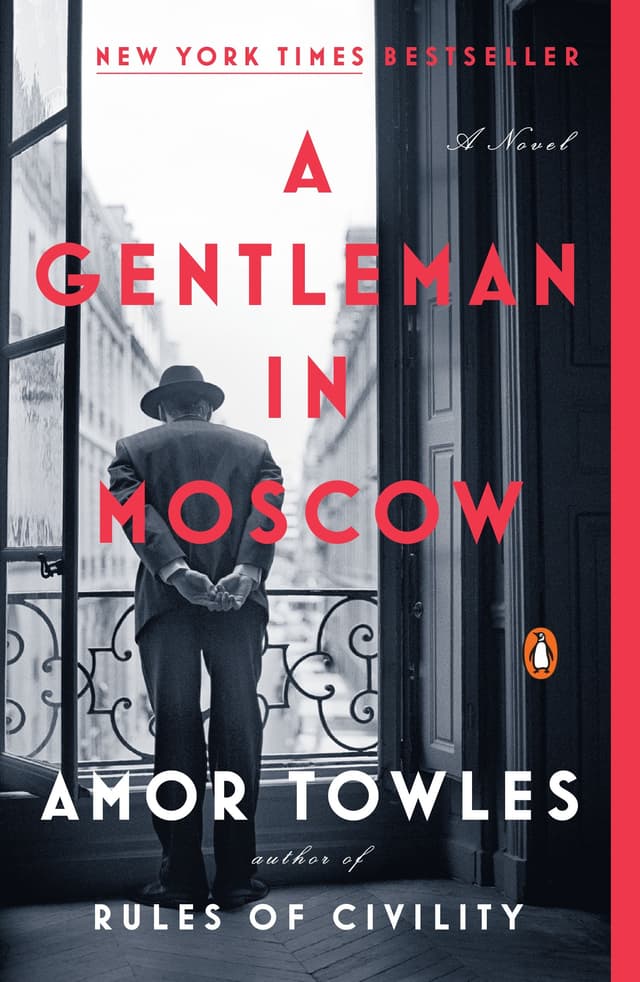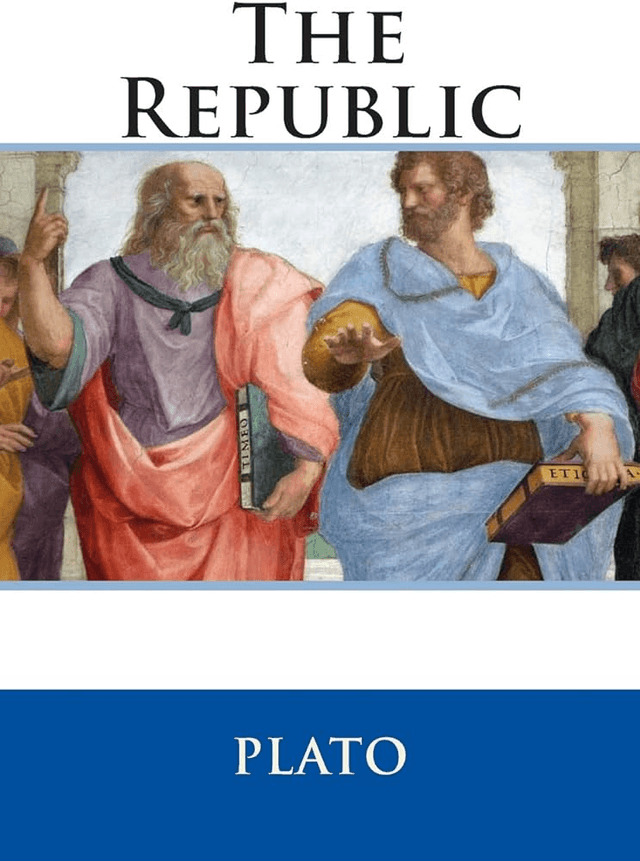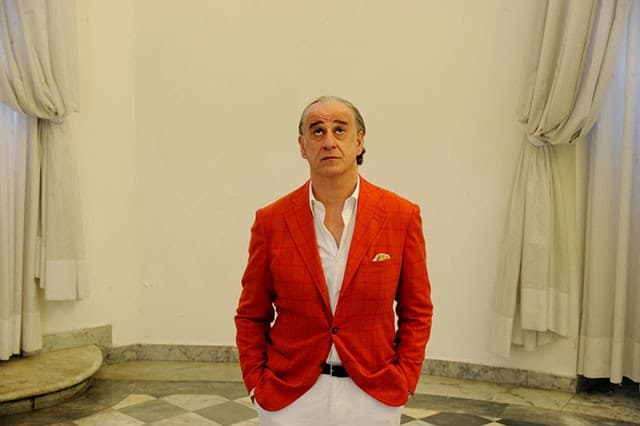A Gentleman in Moscow by Amor Towles vs. The Republic
A Gentleman in Moscow by Amor Towles
A Gentleman in Moscow is a historical fiction novel by Amor Towles. It follows Count Alexander Rostov, a Russian aristocrat who, after the Bolshevik Revolution, is sentenced to house arrest in the grand Hotel Metropol in Moscow. Instead of being imprisoned in a cell, he’s confined to the hotel, which becomes both his cage and his world. The story spans several decades, starting in the 1920s and running through key moments of Soviet history. Most of it unfolds inside the hotel, which is no ordinary place—it's a bustling, self-contained universe. Rostov, who begins the story living in a lavish suite, is forced to move into a tiny attic room. Despite this fall from grace, he navigates his new life with wit and charm, forming friendships with the hotel staff, guests, and unexpected visitors. The book isn’t just about the Count’s personal journey—it’s also about how time changes people and places, how history creeps in even when you’re standing still, and how small acts of kindness and lo...
The Republic
The Republic is a Socratic dialogue, written by Plato around 380 BC, concerning the definition of justice, the order and character of the just city-state and the just man—for this reason, ancient readers used the name On Justice as an alternative title (not to be confused with the spurious dialogue also titled On Justice). The dramatic date of the dialogue has been much debated and though it might have taken place some time during the Peloponnesian War, "there would be jarring anachronisms if any of the candidate specific dates between 432 and 404 were assigned". It is Plato's best-known work and has proven to be one of the most intellectually and historically influential works of philosophy and political theory. In it, Socrates along with various Athenians and foreigners discuss the meaning of justice and examine whether or not the just man is happier than the unjust man by considering a series of different cities coming into existence "in speech", culminating in a city called Kallipo...

Reviews
Reviewed on 2/23/2025
Count Alexander Ilyich Rostov, a Russian aristocrat is sentenced to house arrest in his residence at a luxury Hotel Metropol in Moscow. The story spans decades, as Rostov develops friendships, enmities and relationships with the staff and guests at the Metropol. I've actually listened to this story as an Audible audiobook two or three times.
Reviews
| Item | Votes | Upvote |
|---|---|---|
| No pros yet, would you like to add one? | ||
| Item | Votes | Upvote |
|---|---|---|
| No cons yet, would you like to add one? | ||
| Item | Votes | Upvote |
|---|---|---|
| Has significantly shaped Western thought | 1 | |
| Timeless relevance | 1 |
| Item | Votes | Upvote |
|---|---|---|
| Dense and complex language | 1 | |
| Abstract concepts can be challenging to grasp | 1 |
Frequently Asked Questions
'A Gentleman in Moscow' offers a narrative-driven experience with rich character development and a historical backdrop, making it highly engaging for readers who enjoy storytelling. In contrast, 'The Republic' is a philosophical dialogue that requires active engagement with complex ideas about justice and society, which may not appeal to all readers. Therefore, if you prefer a narrative style, 'A Gentleman in Moscow' may be more engaging, while 'The Republic' is better suited for those interested in philosophical discourse.
'The Republic' has significantly shaped Western thought and philosophy, influencing countless discussions on justice, governance, and ethics since its publication. In contrast, 'A Gentleman in Moscow' is a contemporary novel that, while well-received and impactful in literary circles, does not carry the same historical weight or influence as Plato's work. Therefore, 'The Republic' is considered to have a greater impact on Western thought.
'A Gentleman in Moscow' is generally considered easier to read due to its narrative style and character-driven plot, making it accessible to a wider audience. In contrast, 'The Republic' features dense and complex language, along with abstract concepts that can be challenging to grasp, which may require more effort and background knowledge to fully understand. Thus, for casual readers, 'A Gentleman in Moscow' is likely the easier read.
'A Gentleman in Moscow' is a historical fiction novel by Amor Towles that follows Count Alexander Rostov, a Russian aristocrat sentenced to house arrest in the Hotel Metropol in Moscow after the Bolshevik Revolution. The story spans several decades, exploring Rostov's life within the confines of the hotel, his relationships with staff and guests, and the impact of historical events on his existence.
The author of 'A Gentleman in Moscow' is Amor Towles, an American novelist known for his engaging storytelling and richly drawn characters.
'A Gentleman in Moscow' explores themes such as the passage of time, the impact of history on individual lives, the importance of friendship and loyalty, and the resilience of the human spirit in the face of adversity.
The ambiance in 'A Gentleman in Moscow' is richly described, capturing the opulence of the Hotel Metropol and the various settings within it, from fine dining rooms to hidden corridors. The novel conveys a sense of nostalgia and warmth, reflecting the Count's experiences and interactions over the decades.
Pros of 'A Gentleman in Moscow' include its beautifully crafted prose, engaging character development, and the exploration of profound themes within a historical context. However, some readers may find the pacing slow at times, as much of the story unfolds within the confines of the hotel without significant action.
Readers generally appreciate 'A Gentleman in Moscow' for its rich storytelling and character depth. Many enjoy the audiobook format, with some listeners having experienced the story multiple times, indicating its lasting impact and appeal.
'The Republic' is a Socratic dialogue written by Plato around 380 BC. It addresses the definition of justice and examines the order and character of the just city-state and the just man. The dialogue explores whether a just man is happier than an unjust man through discussions on various topics, including the theory of forms, the immortality of the soul, and the roles of philosophers and poets in society.
Pros of 'The Republic' include its significant influence on Western thought and its timeless relevance. However, the dialogue is known for its dense and complex language, and the abstract concepts can be challenging to grasp.
'The Republic' was written by the ancient Greek philosopher Plato.
'The Republic' is considered an influential work because it has significantly shaped Western philosophical and political thought. Its discussions on justice, the ideal state, and the role of philosophers have had a lasting impact on intellectual history.
Key themes in 'The Republic' include justice, the ideal state, the theory of forms, the immortality of the soul, and the roles of philosophers and poets in society.




















